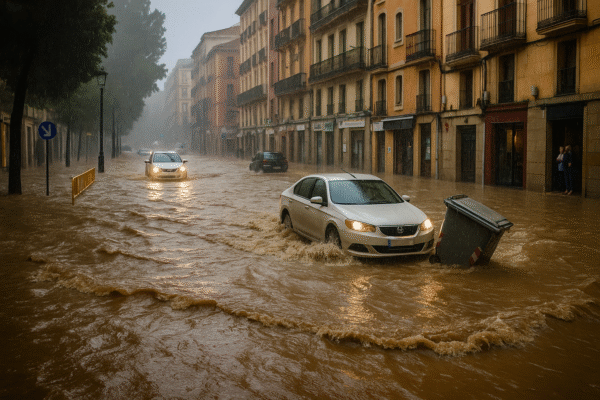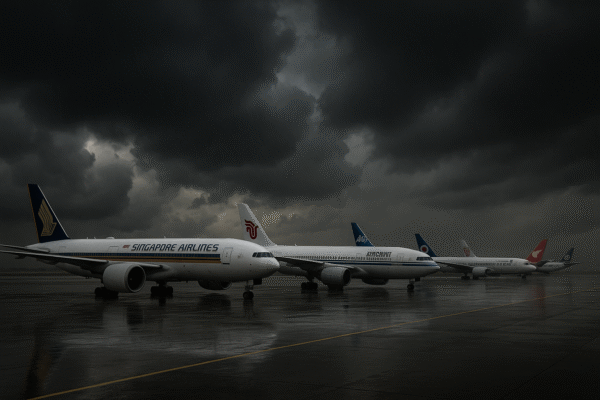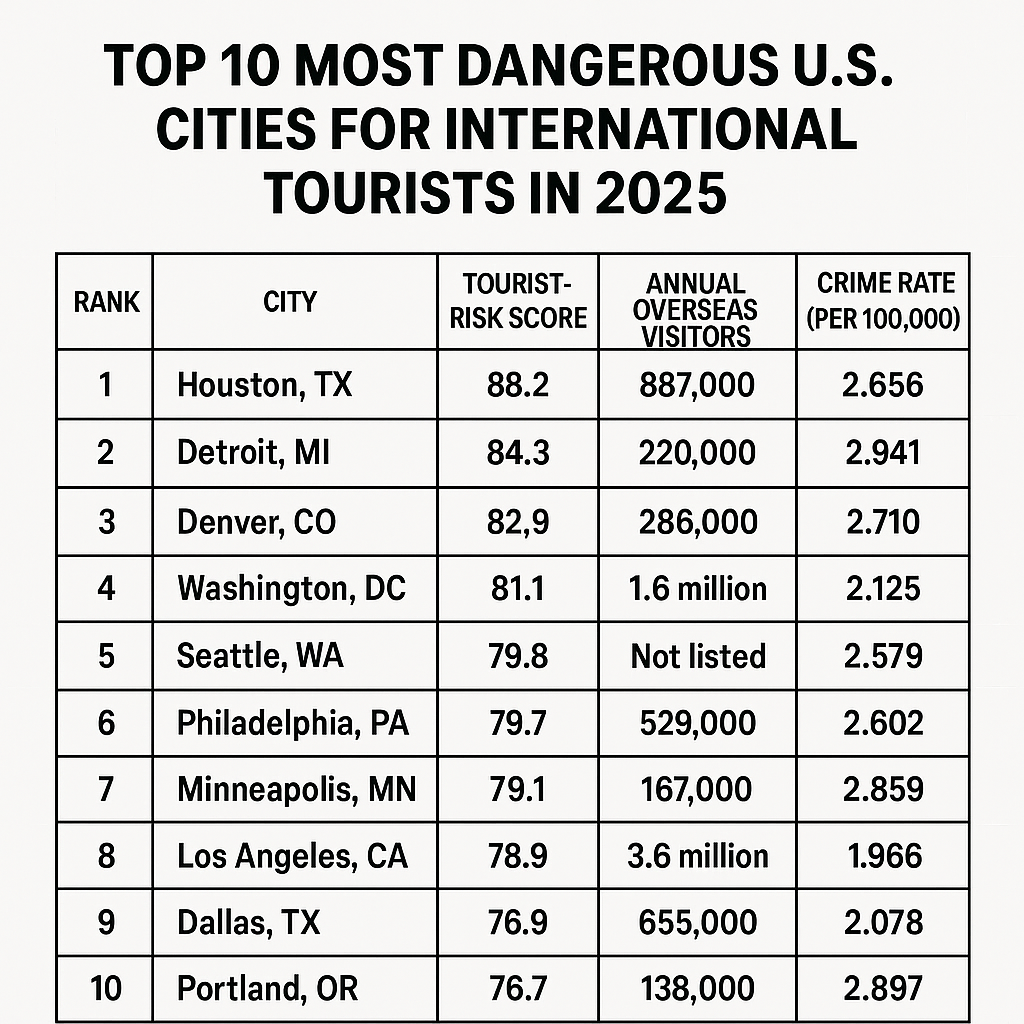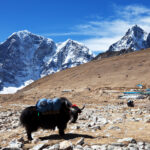As global security threats escalate, the United States has partnered with countries including Zambia, Japan, Fiji, Finland, Poland, Greenland, Taiwan, and Norway to safeguard international travelers. The collaboration follows a Canadian government travel warning, urging its citizens to heighten vigilance amid rising risks linked to terrorism, cybercrime, regional instability, and environmental hazards.
This collective initiative underscores a growing commitment to proactive travel safety as nations face a variety of challenges—from organized crime in American cities to landmine risks in southern Africa and natural hazards in Greenland. Travelers are urged to consult official advisories, stay updated, and remain cautious in high-risk areas to ensure safe passage through global destinations.
United States: Border Crime and Urban Safety Challenges
While the US remains a top destination for global travelers, security challenges persist. The US-Mexico border, particularly in California, Arizona, New Mexico, and Texas, is prone to drug trafficking and smuggling-related crime. Authorities advise travelers to use official border crossings only and avoid nighttime driving in border regions.
In major urban centers, gun violence and street crime—often linked to gangs—can pose dangers, especially in economically depressed neighborhoods. Although tourists are rarely targets, incidents in public spaces such as malls, transit hubs, and tourist attractions highlight the unpredictability of mass violence. The Department of Homeland Security (DHS) continues to issue real-time alerts on terrorist threats to help guide safe travel planning.
Zambia: Environmental and Regional Conflict Concerns
Zambia’s tourism sector thrives, but areas near the borders with Angola, the DRC, and Mozambique still pose landmine threats, despite the country being declared mine-free in 2009. In July 2025, reports of a toxic spill into the Kafue River due to mining wastewater raised alarm. Tourists are advised to avoid affected water sources, refrain from consuming local fish, and monitor updates from Zambia’s Disaster Management and Mitigation Unit.
Japan: Low Crime But High Geopolitical Sensitivity
Japan continues to attract tourists with its safety and hospitality, but regional tensions with North Korea remain a concern. Visitors are encouraged to monitor developments in East Asia, particularly via the Japan Meteorological Agency and the Ministry of Foreign Affairs.
While violent crime is rare, petty thefts like pickpocketing occur in tourist hubs such as Shibuya, Shinjuku, Kabukicho, and Roppongi. Tourists should also avoid carrying items for strangers, as Japan enforces strict drug laws with severe penalties.
Fiji: Urban Crime and Fraud Risks
Known for its beaches and island retreats, Fiji faces petty crime issues, particularly in cities like Suva and Nadi. Bag snatching, ATM fraud, and methanol-contaminated alcohol incidents have been reported. The Fiji Police Force urges tourists to avoid flaunting wealth and to use well-lit ATMs.
Finland: Elevated Terror Alert and Cybercrime Risks
While Finland is generally safe, authorities have maintained an elevated threat level for terrorism, particularly in public areas such as airports and festivals. The Finnish Security Intelligence Service (SUPO) recommends caution at large gatherings.
Cybercrime is an emerging issue—visitors should avoid public Wi-Fi networks and protect sensitive data. Pickpocketing can also occur in Helsinki during the summer travel season.
Poland: Border Tensions and Petty Crime
Due to its proximity to the Ukrainian conflict, Poland occasionally sees spillover effects, including falling debris near border areas. The Polish Border Guard urges travelers to stay updated on safety conditions when near Ukraine.
Petty crimes like theft and card fraud are common in cities like Warsaw, Kraków, and Gdańsk, particularly around transit stations and crowded tourist sites. Discrimination and harassment based on appearance or sexual orientation have also been reported.
Greenland: Adventure Tourism in Extreme Conditions
Greenland’s remote beauty is attracting more tourists, but the risks are high for those engaging in hiking, glacier tours, and mountain climbing. Emergency services are limited, and travelers must be self-reliant.
Weather can shift quickly, with risks of avalanches and blizzards, even during summer. The Government of Greenland advises all visitors to register travel plans and carry comprehensive evacuation insurance.
Taiwan: Scams and Credit Card Fraud
Taiwan is one of Asia’s safest destinations, but travelers should watch out for phone scams and credit card fraud. Tourists have reported impostors posing as officials or bank representatives requesting money or personal data.
Pickpocketing can occur on public transport and in night markets, so valuables should be secured. Use of secure ATMs and monitoring of bank accounts is also recommended.
Norway: Urban Crime and Digital Threats
Norway offers relative safety, but cities like Oslo have seen sporadic gang-related violence. Petty theft, especially in crowded summer tourist areas, is common.
Authorities warn of cybercrime, particularly via unsecured public Wi-Fi. The Norwegian Police Security Service (PST) advises travelers to avoid online transactions in public areas and to remain alert for terror threats during large public gatherings.
International Travel in a Changing World
As Canada’s travel warning signals rising global instability, the cooperative effort led by the US and its partners is a critical step in protecting tourists across diverse regions. From geopolitical flashpoints to natural disaster zones, the travel landscape is increasingly complex.
To mitigate risks, travelers should:
- Check national travel advisories before departure.
- Register with their embassy when traveling abroad.
- Secure travel and medical evacuation insurance.
- Stay connected to local news and emergency alerts.
- Avoid high-risk areas and maintain situational awareness.
The collaborative approach by nations like the US, Japan, Zambia, and Greenland emphasizes a shared responsibility in protecting global travelers. With proper planning and awareness, tourists can navigate today’s uncertain travel climate while enjoying the rich experiences the world has to offer.
For more travel news like this, keep reading Global Travel Wire






















